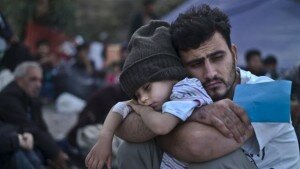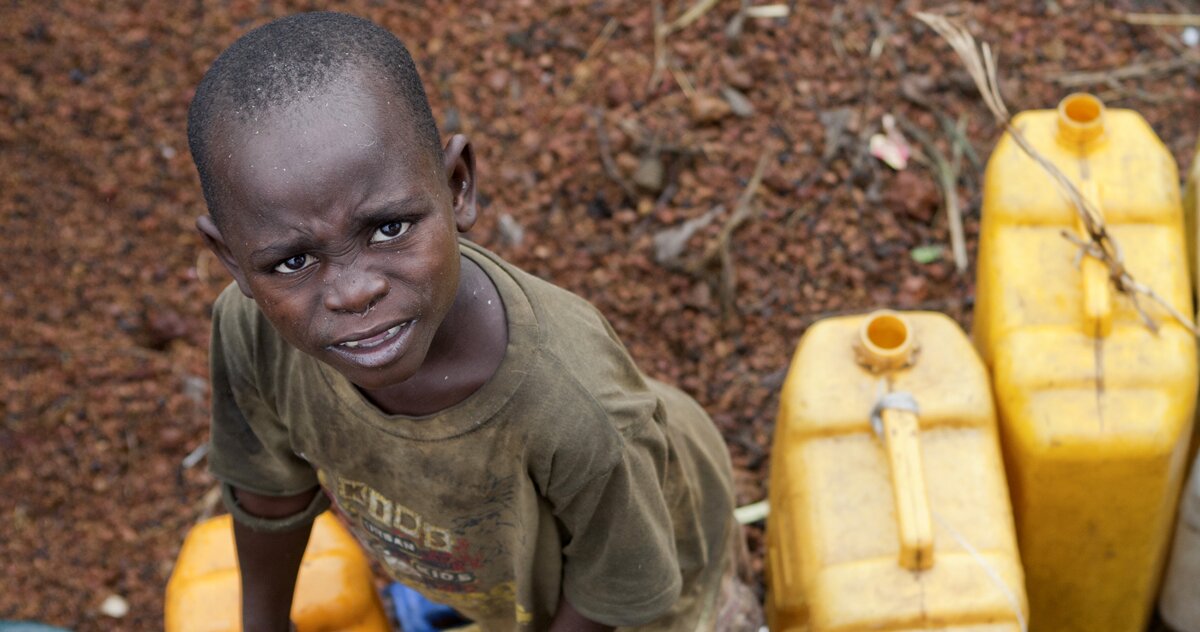Your Voice Mattered: ISIS Attacks Declared Genocide
Declaring these attacks for what they are – genocide – is an important step. The truth matters. But what happens next is more important. 0
0  0 likes
0 likes
Blog Sub Title
Blog Sub Title
 The Situation
The SituationThe Syrian crisis began in early 2011 when Syrian President Bashar al-Assad began a brutal crackdown on growing peaceful protests throughout the country.
With the use of tanks, attack helicopters, and artillery against protesters and the torture and execution of children, protests spread and opposition groups took up arms. The attacks and counter-attacks escalated into a full-fledged civil war between the Assad regime with allied militias and an array of opposition groups.
On August 21, 2013, the crisis took on a dangerous new dimension with a chemical weapons attack by the Syrian regime that killed over 1,400 people, according to a U.S. intelligence report. The use of chemical weapons in Syria continue to be reported by the Organization for the Prohibition of Chemical Weapons (OPWC), but without clarity on what parties are responsible.
The death toll has reached over 240,000 and almost half the country’s people — 12 million men, women and children — have been forced to flee their homes. The majority of civilians have been killed at the hands of the Assad regime, which has targeted schools and medical centers with crude barrel bombs.
The crisis has grown to a regional crisis with severe implications for global peace and security. Regional powers are supplying weapons and other support to both sides, with Iran notably backing the Assad regime and Gulf States providing arms to the opposition.
Sectarian violence related to the conflict has been seen in Lebanon and Iraq and millions of refugees have fled into neighboring countries. Appeals for international aid have increased as the UN refugee agency (UNHCR) in September 2015 estimated that over 4 million Syrians were now refugees, up from around 3 million just one year before. Hundreds of thousands of Syrian refugees have made their way to Europe creating a crisis that has launched intense debate in Europe and the United States.
The debate over how to respond to the attacks has deeply divided the international community from acceptance of refugees to the best ways to protect civilians and ultimately to reach a political solution.
The Syrian uprising began with protests held in early 2011, demanding release of political prisoners. In March 2011, security forces opened fire on protesters at a “Day of Rage” rally in the southern city of Deraa, triggering days of violent unrest and more civilian deaths.
While the demonstrations in Syria were peaceful at the outset, and called largely for reform of President Bashar al-Assad’s regime, the Syrian government’s violent response led to widespread defections from the Syrian military and provoked the creation of armed opposition.
 The brutal response prompted further non-violent demonstrations across Syria, helping to transform and diffuse series of local grievances into a widespread call for the end of the Assad regime.
The brutal response prompted further non-violent demonstrations across Syria, helping to transform and diffuse series of local grievances into a widespread call for the end of the Assad regime.
Security forces used tanks, combat helicopters, artillery and other heavy weapons against centers of anti-government protest as reflected in numerous massacres.
Sectarian violence also increased with some armed opposition groups committing human rights abuses against Alawite communities due to their perceived support for the government.
The levels of violence prompted the International Committee for the Red Cross to declare the situation in Syria a civil war in July 2012. The new status meant that international humanitarian law applies to all areas where hostilities are taking place.
As reports of chemical weapons were confirmed by the United States in June 2013, crossing a “red line” President Obama had declared the previous year, the United States confirmed that it would provide direct military aid to some opposition groups.
Fighting and abuses have continued dividing the country into areas controlled by the government and an array of opposition groups. The rise of the Islamic State (ISIS) has further complicated the conflict and brought in a new level of barbarity that has prompted air strikes by both the Syrian regime and the United States and its allies. Weapons and other material support continue to flow in to all sides as the United States and other countries debate further involvement.
The formation of an opposition umbrella, the Syrian National Coalition in November 2012 and its subsequent international recognition, including from the United States, appeared to increase the likelihood for a political resolution to the unrelenting crisis. But disagreements among opposition forces over the makeup of a post-Assad transition government raised doubt over their credentials as a viable alternative to the Assad regime.
Further complicating peace efforts, the opposition remains deeply divided beyond their common enemy in the Assad regime. Many extremist Islamist elements have poured into Syria. Estimates vary widely as to the numbers of extremist elements making up the opposition, but their forces have been cited as among the most effective in combating the Assad regime, further complicating the crisis and opening worries about what a post-Assad Syria might look like.
The United Nations has condemned the violence against civilians, but has been unable to agree on appropriate action. International efforts to quell the violence began with an Arab League observer mission sent to Syria in late 2011 but failed to end the bloodshed. China and Russia have vetoed four UN Security Council resolutions on Syria aimed at stemming the violence.
A resolution (UNSC Res 2139) condemning the bombing of civilian areas and the use of barrel bombs was finally passed in February 2014, but little action has been seen despite ongoing violations by the Assad regime. The Syrian regime also continues to block delivery of cross-border humanitarian aid in violation of two other Security Council resolutions.
Various peace efforts have been tried with the UN now on its third Special Envoy.
A report commissioned by the UN Independent International Commission of Inquiry (CoI) on Syria, cites that war crimes, including murder, extrajudicial killings and torture, and gross violations of international human rights, including unlawful killing, attacks against civilians and acts of sexual violence, have been committed in line with State policy, with indications of the involvement at the highest levels of the Government, as well as security and armed forces.
The report also concludes that the Government forces and Shabiha fighters were responsible for the Houla massacre. While opposition forces also committed war crimes, including murder and torture, the CoI says that their violations and abuses were not of the same gravity, frequency and scale as those committed by Government forces and Shabiha militias.
The plight of an increasing flow of refugees, captured in a heart wrenching photo of the body of a small boy washed up on a beach in Greece, sparked intense debate within Europe and the United States.
The United States has led the world in supplying of $4 billion in aid to Syrian refugees, but has taken in only 1,500 Syrian refugees in the first four years of the conflict. Though the Obama administration has pledged to take in more, human rights groups and former U.S. officials warn the number remains inadequate.

After four years of war and living under the constant threat of mass atrocities and genocide, there are two things the Syrian people need: hope and compassion. We can offer that.
The United States has only accepted 1,600 Syrians in the past four years. And while President Obama has offered to increase that number to 10,000, the scale of the crisis demands a number ten times that.
Take action. Urge President Obama to increase the number of Syrian refugees accepted into the United States and work to make sure that relief efforts are fully funded.
ACT NOW


 Like the Cause &
Like the Cause &  Spread the Word
Spread the Word
 0 shares
0 shares 0 likes
0 likes
 0 shares
0 shares 0 likes
0 likes

 0 shares
0 shares 0 likes
0 likes

 0 shares
0 shares 0 likes
0 likes
Help stop genocide before it starts. Ask your Senator: Support the Genocide and Atrocities Prevention Act.
Act Now!